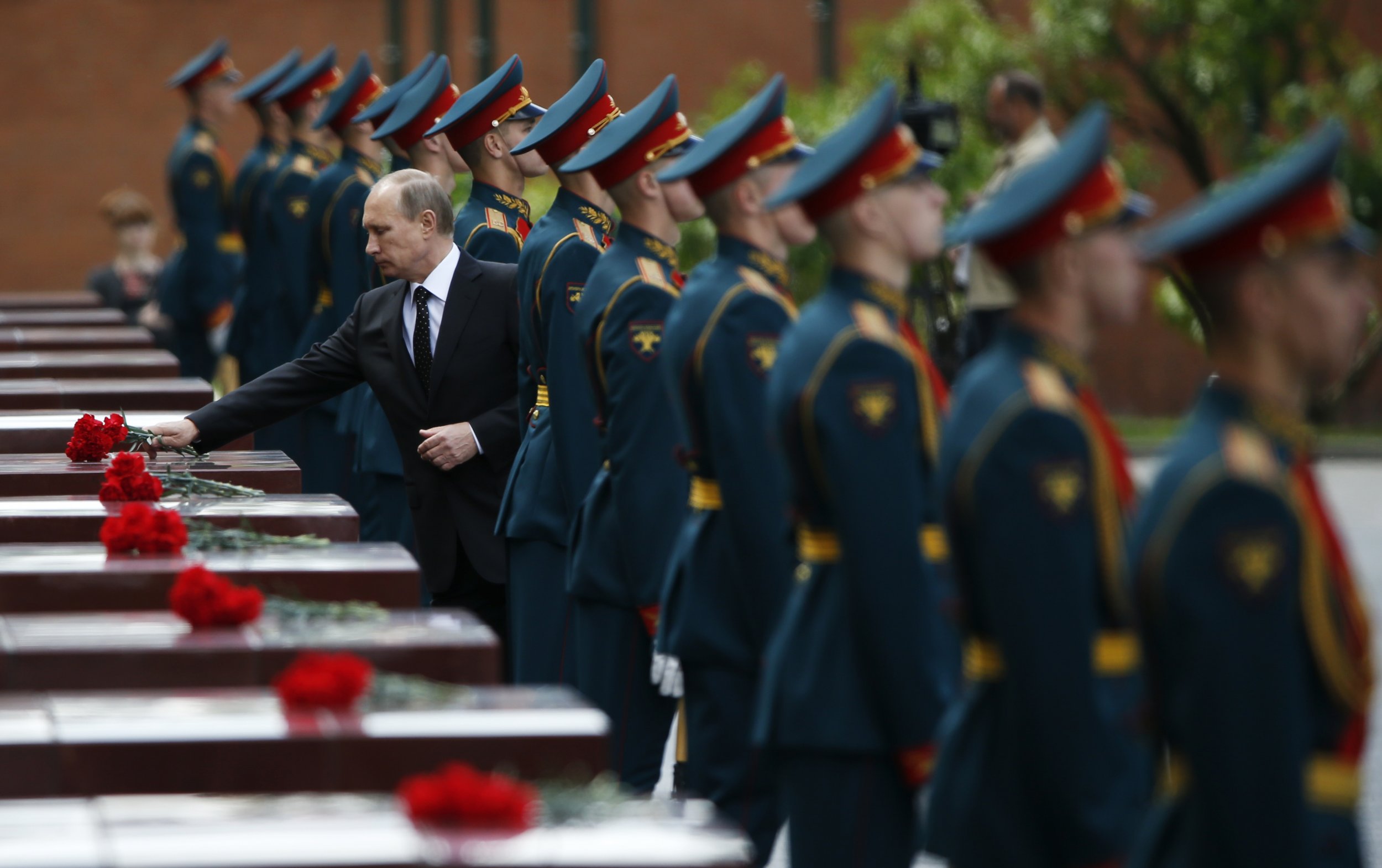
Most Russians believe the Soviet military would have been able to win World War II without the efforts of the U.S. or its allies, a new poll finds.
The Soviet Union suffered the most casualties in the conflict, and the issue is highly emotional for many Russians. Victory Day—the Soviet-style celebration of the end of the war—is one of Russia's most popular holidays, behind only New Year's Eve.
Evidence of Soviet supremacy in forcing the Nazis into retreat on the eastern front was widely taught in Russian schools in Communist times, and most Russians still seem to hold on to that view.
Related: Is war in Russia imminent? Most Russians don't think so
Two-thirds of Russians (63 percent) said the Soviet Red Army would have overwhelmed Germany's troops regardless of the actions of the U.S., the U.K., France and their allies, according to the survey by the Levada Center, Russia's largest independent pollster.
The survey started in 1991, and majority opinion in Russia has never indicated that Moscow needed the Allies to stop Adolf Hitler's advance. Since Soviet times, attitudes in Russia toward the Allied contribution to the war effort have been marked by negativity, in part due to the U.S. and U.K.'s two-year delay in deploying a much-awaited second front in France while Nazi troops were marching deep into Russia's south and west.
The reason for the huge casualties suffered by Russia, Ukraine, Belarus and other former Soviet republics, whose territory stood in the way of the Nazi push east, is a topic of historical debate. Historians disagree about the exact casualty count, though the U.S. Eisenhower Center cites Soviet casualties as high as 11 million troops and between 7 million and 20 million civilians.
The ruthlessness of Josef Stalin and failings inside the Soviet military command are sometimes given as reasons for the numerous deaths. Only 12 percent of Russians blamed Stalin's disregard for his own people for the many war deaths—a record low since 1997, when over a third of Russians blamed the mustachioed Georgian.
Stalin's ambition to reach Berlin before the Allies pressing from the West could do so ended with the Soviet flag flying above the Reichstag. However, the battle for Berlin alone reportedly cost the Red Army 70,000 lives.
Only 10 percent blamed the weakness of the Soviet command for the huge discrepancy between Russian casualties and Germany's. The same number claimed the Nazis were simply more barbaric in warfare. German forces employed particularly merciless death squad units known as Einsatzgruppen on the eastern front, carrying out mass assassinations and acts of ethnic cleansing across the populations caught in the crossfire.
Combined, a majority of Russians blamed the high casualties on Nazi Germany invading the Soviet Union in a surprise attack after it had signed a nonaggression pact (36 percent) or on Germany's technological superiority (24 percent).
Uncommon Knowledge
Newsweek is committed to challenging conventional wisdom and finding connections in the search for common ground.
Newsweek is committed to challenging conventional wisdom and finding connections in the search for common ground.
About the writer
I am a Staff Writer for Newsweek's international desk. I report on current events in Russia, the former Soviet Union ... Read more
To read how Newsweek uses AI as a newsroom tool, Click here.








